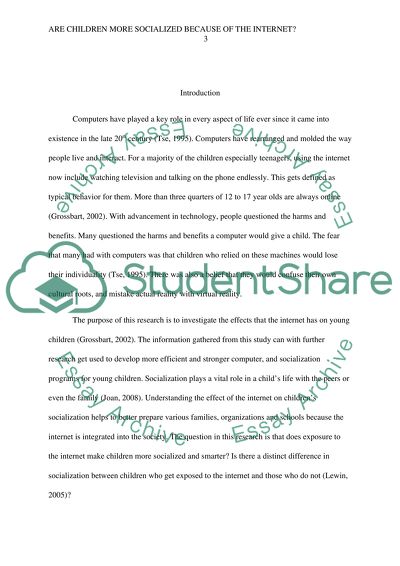Cite this document
(“Are Children More Socialized Because of The Internet Research Paper - 1”, n.d.)
Retrieved from https://studentshare.org/sociology/1611010-are-children-smarter-or-more-socialized-because-of-the-internet
Retrieved from https://studentshare.org/sociology/1611010-are-children-smarter-or-more-socialized-because-of-the-internet
(Are Children More Socialized Because of The Internet Research Paper - 1)
https://studentshare.org/sociology/1611010-are-children-smarter-or-more-socialized-because-of-the-internet.
https://studentshare.org/sociology/1611010-are-children-smarter-or-more-socialized-because-of-the-internet.
“Are Children More Socialized Because of The Internet Research Paper - 1”, n.d. https://studentshare.org/sociology/1611010-are-children-smarter-or-more-socialized-because-of-the-internet.


